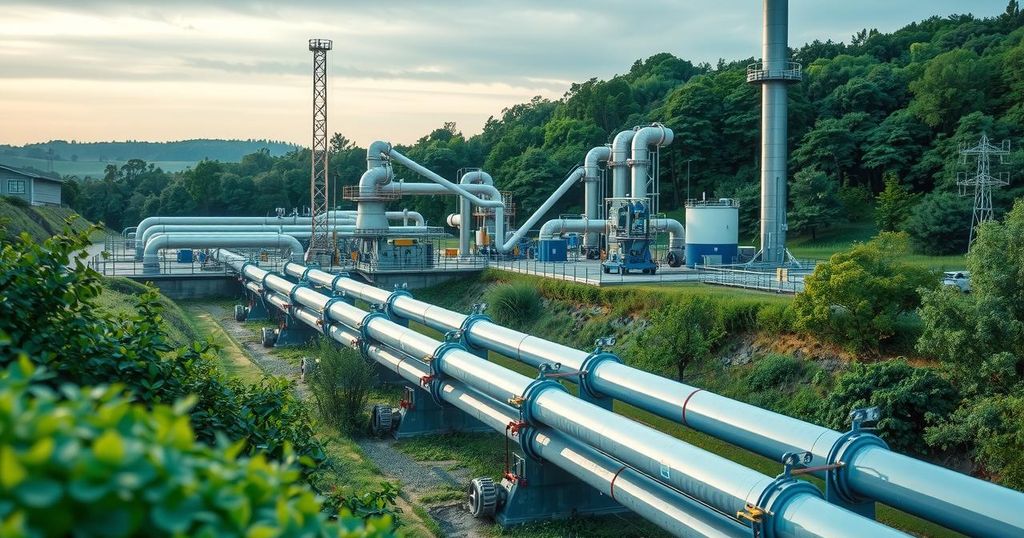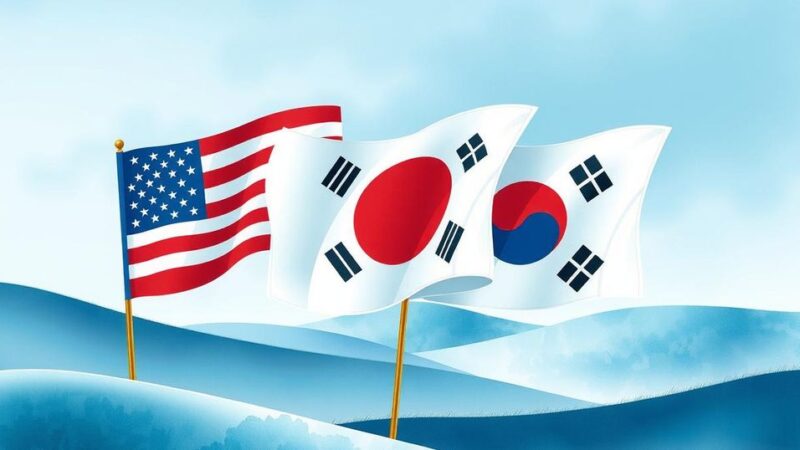Iraq is seeking alternatives to Iranian gas imports in response to US sanctions and rising tensions. The government is exploring partnerships with Gulf nations, including Qatar and Oman, and plans to establish floating LNG terminals to diversify energy sources. The urgency is heightened by chronic electricity shortages impacting its citizens.
Iraq is actively seeking alternatives to its reliance on Iranian gas imports, a move prompted by the need to reduce dependence on a country affected by international sanctions. A government official announced that potential sources from the Gulf region are being explored, following the US administration’s decision to end a sanctions waiver, which previously permitted Iraq to purchase electricity from Iran. Currently, Iran supplies one-third of Iraq’s energy needs, raising concerns as tensions escalate between the US and Iran.
Saad Jassem, an official from the Iraqi electricity ministry, acknowledged Iraq’s previous total reliance on Iranian imports and underscored that there are directives to diversify the sources of energy. As of now, however, there has been no halt to Iranian gas imports. Amid these developments, a US diplomat emphasized the urgency for Iraq to reduce its natural gas purchases from Iran. Iraq is addressing its energy challenges, prompted by chronic infrastructure issues that have led to significant power cuts.
In preparation for potential disruptions in gas supply, Iraq is exploring various alternatives. Jassem indicated that Qatar, as a leading natural gas producer, has expressed support and is willing to negotiate favorable rates. Additionally, there are ongoing discussions to procure gas from Turkmenistan via pipelines through Iran. Iraq aims to establish two floating liquefied natural gas terminals in the Khor al-Zubair area, with expected operational dates by June, potentially processing up to 19 million cubic meters daily.
The establishment of these facilities aims to mitigate the shortfall from Iranian gas reliance. Jassem emphasized the critical nature of energy stability, noting that an interruption in gas supply would severely impact electricity availability. The Iraqi government, led by Prime Minister Mohammed Shia al-Sudani, aims to mitigate gas flaring in oil fields by 2028 to improve energy production for power stations.
The relationship dynamics between Iraq, Iran, and the United States are complex, especially as recent fluctuations in gas supply from Iran have caused additional strain amid increased local demand and delayed payments from Iraq. In 2024, Iraq and Iran extended their gas import agreement; however, current deliveries fall significantly short of contracted amounts, intensifying ongoing electricity shortages, particularly during hot summer periods.
In summary, Iraq is pursuing various alternatives to Iranian gas due to geopolitical pressures and rising domestic energy needs. Efforts include agreements with regional suppliers and the establishment of LNG terminals to enhance energy self-sufficiency. These measures aim to secure a stable power supply for Iraq’s population amid ongoing diplomatic challenges and infrastructure issues.
Original Source: www.wyomingnewsnow.tv






